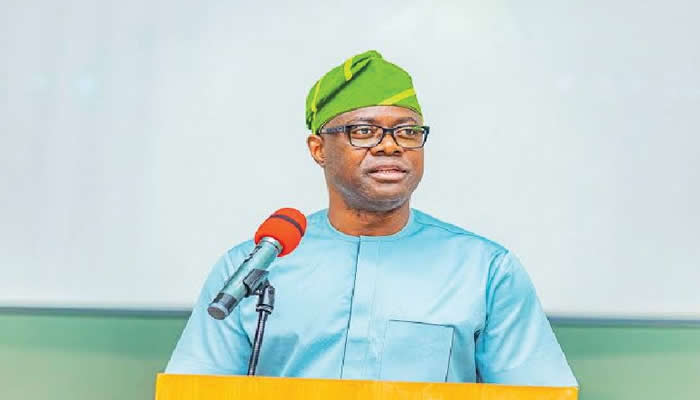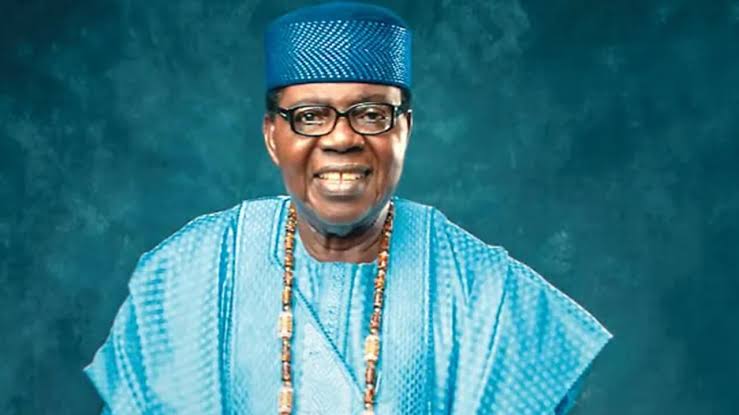
Joy in the Classroom: Oyo State Government Distributes Free Textbooks to Public Schools

In a bold and commendable step aimed at strengthening the foundation of public education, the Oyo State Government has commenced the large-scale distribution of free textbooks to students in public schools across the state. The initiative, which is being hailed by education stakeholders and residents alike, is already bringing smiles to the faces of thousands of pupils and their parents who often struggle with the financial burden of school materials.
Governor Seyi Makinde, known for his consistent focus on education, confirmed that the exercise is part of the administration’s broader plan to promote free and quality education for every child in Oyo State. According to the governor, the textbook distribution aligns with the government’s objective to eliminate the barriers that prevent children from acquiring proper learning tools, especially in economically disadvantaged communities.
Excitement filled the air across various schools in Ibadan, Ogbomoso, Iseyin, and other parts of the state as government officials arrived with trucks loaded with textbooks tailored to different levels and subjects. The books cover essential subjects such as English Language, Mathematics, Basic Science, Civic Education, and Social Studies, among others. Teachers, students, and school heads gathered eagerly as boxes were offloaded and distributed in an orderly manner.
Speaking during the flag-off ceremony in Ibadan, the Commissioner for Education, Science, and Technology, Prof. Salihu Abdulwaheed, emphasized the government’s unwavering commitment to ensuring that every child in Oyo State, regardless of background, receives equal access to education. He noted that the distribution was not just about books, but about empowering a generation of learners to reach their full potential without being limited by poverty or lack of resources.
Parents who spoke to news reporters expressed immense gratitude to the government, acknowledging the financial relief the gesture brings to their households. Many said they had previously struggled to afford textbooks for their children and were forced to rely on borrowed materials or second-hand books with missing pages. The new books, freshly printed and well-illustrated, are expected to improve the overall learning experience and boost academic performance.
Teachers have also commended the initiative, describing it as a game-changer in the state’s educational development. According to Mrs. Tolu Oladimeji, a public school teacher in Ibadan North Local Government Area, the availability of uniform textbooks will make teaching more effective and structured. “It’s easier to teach when all the students are on the same page, literally. We can give homework and assignments knowing every child has access to the material. This is a big win for us as educators,” she said.
In recent years, the Oyo State Government has rolled out several reforms aimed at improving the standard of education, including training and re-training of teachers, rehabilitation of dilapidated school structures, and the provision of modern learning equipment. The free textbook program is the latest in a series of targeted interventions to consolidate these reforms and achieve the broader goal of a functional, inclusive, and globally competitive education system.
Observers note that the initiative could not have come at a better time. With the current economic hardship facing many Nigerian families, the cost of textbooks has risen sharply, placing added pressure on parents struggling to meet basic needs. By taking on the responsibility of providing these learning materials, the state government is not only easing this burden but also reaffirming its role as a people-centered administration.
The move has drawn praise from civil society organizations and education advocacy groups who argue that access to education must go beyond enrollment. According to Mr. Akin Olatunde, a representative of the Education Rights Network, true access involves providing the tools necessary for learning, including books, writing materials, and trained teachers. “We commend Governor Makinde and his team for taking a holistic approach. Giving a child a seat in a classroom is not enough. That child must also have what it takes to learn, and books are fundamental,” he said.
Despite the overwhelming support for the initiative, some stakeholders are calling for measures to ensure sustainability and accountability. There have been suggestions for the establishment of a monitoring team that will track the use of the textbooks in schools and ensure that they are not diverted or hoarded. Others believe that future distributions should include digital learning materials to prepare students for a tech-driven future.
Nonetheless, the consensus is that the textbook distribution marks a significant milestone in the state’s education sector. It is a strong message that public education, when properly funded and managed, can rival private institutions in quality and outcome. It also sends a clear signal to other states that investing in education is not just a campaign slogan, but a responsibility that must be upheld in the interest of national development.
As students begin to settle into the term with their new books in hand, many are already feeling more confident and motivated. Ten-year-old Ayomide, a primary five pupil at a public school in Oyo town, said he was excited to receive his first personal textbook. “Before, I used to share with my friend. Now, I have my own. I want to read every day and become a doctor,” he beamed.
The impact of this initiative will likely be long-lasting. With thousands of students now equipped with learning materials, the state’s educational outcomes are expected to improve significantly. More importantly, the gesture reinforces the idea that every child, regardless of social status or family income, deserves a fair chance to learn, grow, and succeed.
The coming months will reveal how well the distribution effort translates into improved academic performance and school retention rates. But for now, one thing is certain—the classrooms of Oyo State are brighter, more hopeful places, thanks to an administration that believes in the power of education to transform lives.


